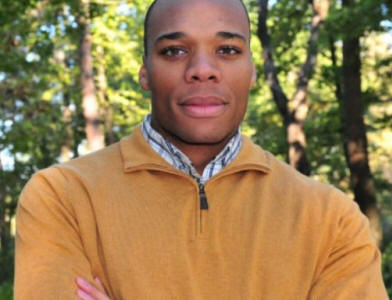
The Great Smoky Mountain Journal
Staff, Wire Reports
Posted: Sunday, January 21, 2018 07:28 PM
OPED: Jeremy Hunt: Demonizing White People Don't Help Racism Divide In America
My father, a black minister, taught me
when I was growing up in Georgia that I should look at people as
individuals, not through a racial lens. Just as it was wrong for white
racists to hate black people, it was wrong for us to hate white people,
he said.
And as a minister, my father spread the words of Jesus Christ, who
taught: “Thou shalt love thy neighbor as thyself.” All neighbors.
In the 1990s, my father co-hosted a local Christian television program
in North Carolina called “The Gospel in Black and White,” where he and a
white pastor preached a message of “racial reconciliation.” They
believed that America could experience true racial healing only if
hearts were changed. They wanted everyone to follow the advice of Dr.
Martin Luther and judge people “by the content of their character” and
not by “the color of their skin.”
Until recently, I never found my father’s teaching to be radical. But in
today’s society, it is being rejected far too often by folks on both
sides of the color line – neo-Nazis and other white supremacists boldly
marching and spewing poisonous hatred of blacks and Jews on one side,
and some black folks becoming a horrifying mirror image by preaching
hatred of white people.
Racism is racism, no matter what color the racist is voicing the ugly
words.
This repulsive gospel of hate is wrong and un-American, and all people
of good will have a responsibility to condemn it. Racism is racism, no
matter what color the racist is voicing the ugly words.
Just a few days ago, black nurse Taiyesha Baker lost her job with an
Indiana hospital system after she sparked outrage for her now-viral
tweet: “Every white woman raises a detriment to society when they raise
a son. Someone with the HIGHEST propensity to be a terrorist, rapist,
racist, killer, and domestic violence all star. Historically every son
you had should be sacrificed to the wolves …."
Speaking of wolves, Baker isn’t a lone one. She is just the latest
example of a growing number of individuals who apparently believe that
prejudice is acceptable, so long as it is directed toward whites.
Just a few weeks ago, the New York Times published an opinion piece
headlined: “Can My Children Be Friends With White People?” The author,
Ekow N. Yankah – a law professor at Yeshiva University – explained how
he intends to raise his children:
“I will teach them to be cautious, I will teach them suspicion, and I
will teach them distrust,” Yankah writes. “Much sooner than I thought I
would, I will have to discuss with my boys whether they can truly be
friends with white people.”
Before that, Professor Jessie Daniels of the City University of New York
tweeted that “the white-nuclear family is one of the most powerful
forces supporting white supremacy” and that families “producing white
children” are “part of the problem” perpetuating white supremacy.
And there was the Democratic National Committee staffer who is looking
to hire new talent so long as they aren’t “straight white males.”
These folks – some of whom are white themselves –seem to believe that
demonizing an entire group of people will somehow uplift blacks and
other minorities. But racial progress doesn’t work that way. Their
flawed logic fans the flames of racial tension at a time when our
country desperately needs less generalizations and more common
understanding.
And perhaps worst of all, this practice plays into the hand of actual
white supremacists. If all white people are called racists, the charge
means nothing when legitimate racists deserve to be called out. It gives
white supremacists the luxury of just being one of the masses, instead
of receiving the direct condemnation they deserve.
Over half a century ago, Dr. King famously remarked that you can’t drive
out hate with hate. He acknowledged the historical fact of white racism
against black people – from the sin of slavery to the racism he fought
in his time until he was murdered by a white man – but understood that
we must look ahead to move forward, not stare into the rearview mirror.
Nelson Mandela, who spent 27 years in prison for battling white racism
in South Africa, preached the same message of forgiveness,
reconciliation and brotherhood when he was finally freed and became
president of that nation in 1994.
Race relations in our country will never improve if Americans answer
prejudice against minorities with prejudice against whites. Instead, we
should strive to see all Americans as they are – not through a
preconceived lens.
Today I am proud to serve as a lieutenant in the U.S. Army, where racism
is banned and where I serve with patriots of every color and ethnic
background, united as brothers and sisters and comrades in arms. When
wounded in defense of our country, we all bleed red. We support each
other and have each other’s backs. This is how it should be in the rest
of society.
It seems my father’s message of reconciliation is needed now more than
ever. As Americans struggle to find common ground, we’ll need to start
by discarding our own prejudices about each other. Maybe then we can
move toward that radical idea of racial healing that so many of us seek.
Jeremy C. Hunt is a 24-year-old writer and commentator. He also serves
as an active duty U.S. Army officer. Follow him on Twitter @thejeremyhunt.
The views expressed in this article are those of Jeremy C. Hunt only and
not those of the Department of Defense.

